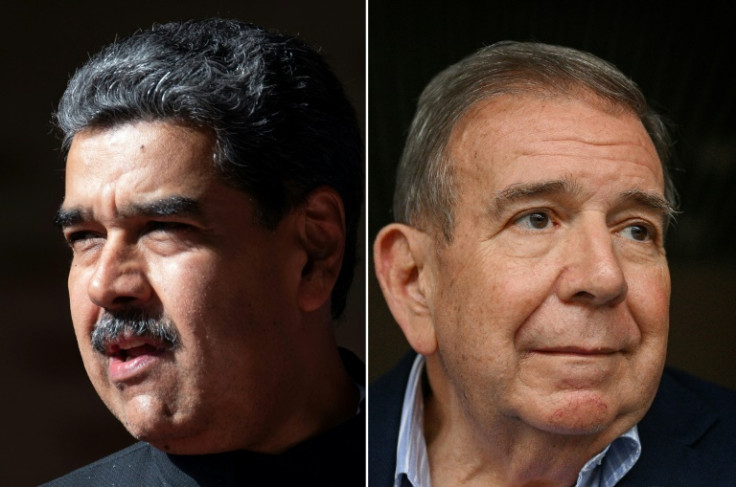
More than 7 million Venezuelans have left their country over the past years as a result of its political, economic and social crisis. Now, as citizens at home and abroad collectively hold their breath as they wait for the results and the developments that follow, those in foreign countries ask themselves an existential question— "if Maduro loses, will I return home?"
Venezuelans all over the world have gathered to follow the events as they unfold. In the U.S., cities like Chicago, Dallas and Miami— popular migrant-hubs— are just few of those in the list.
"Millions have left Venezuela and have migrated all over the world to find a better life. Many of them have not been able to find a better life. Matter of fact, many of them have died trying to find a better life," said Ana Serafin, a Venezuelan in Chicago. "So today we really want these elections to happen in the most specific way possible, the most democratic way possible for us to find the freedom that Venezuela deserves."
Refugee agency UNHCR estimates that more than 7.7 million Venezuelans have left the country since 2014, the largest exodus in Latin America's recent history. Most have settled in the Americas, from neighboring Colombia and Brazil to Argentina and Canada.
In this context, Venezuelans still at home ponder on making a decisive decision based on the elections' outcome— to stay or to leave.
According to a study by Frequency58 from ORC Consultores, between 12.5% and 18% of Venezuelans say that they will leave the country within six months if the Maduro regime claims victory in the elections and stays in power.
"The percentage of migration tells us that 2.8 to 4 million people may be leaving out of an estimated population of 25 million inhabitants of legal age... this would be, in the short term, the largest migratory wave in the country," said Oswaldo Ramirez, the firm's director.
The reverse is happening internationally, with immigrants weighing whether an opposition win is enough to make them move back home.
"For me, personally [an opposition victory] means that I can return to my country without fear of being detained," Jean Rafael Alvarez, a Venezuelan immigrant who currently resides in Argentina told CNN.
By contrast, Yuly Macedo, a 47-year-old lawyer who resides in Miami, said she has always been opposed to the Maduro regime. She's lived in South Florida since April 2016, where she requested political asylum.
Macedo said before fleeing, she worked in several governmental offices in Cagua, a town at the southeast of Caracas. She said her job forced her to attend pro-government demonstrations, recruit people to vote for Maduro, and barred from talking about corruption with anyone, as it would put her at risk of losing her job.
Regardless of the election outcomes, returning to Venezuela is not in her plans.
"I cannot return to Venezuela, I feel very afraid. Very afraid," she told The Associated Press.
Sunday's elections represent the first time since the Chavista regime has been highly threatened by the opposition. The outcome will either lead to a seismic shift in Venezuelan politics or extend Maduro's government to six more years.
© 2024 Latin Times. All rights reserved. Do not reproduce without permission.







